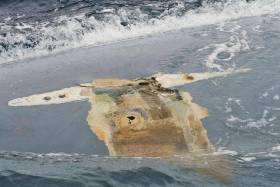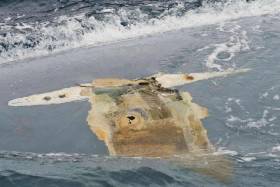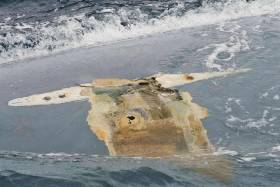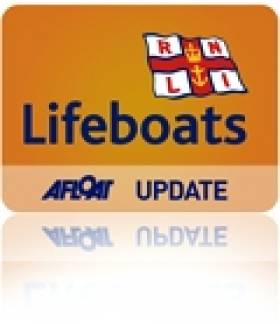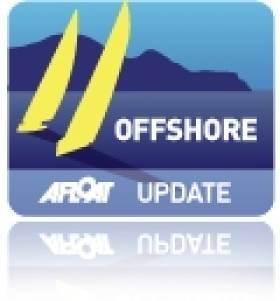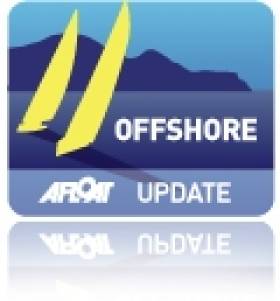Displaying items by tag: Cheeki Rafiki
Suspended Sentence For ‘Cheeki Rafiki’ Yacht Boss
#CheekiRafiki - The director of the yacht company that operated the Cheeki Rafiki — which sank in the Atlantic four years ago, claiming the lives of its four crew — has been given a suspended sentence over the incident, as The Guardian reports.
Douglas Innes of Stormforce Coaching Ltd was convicted last year of failing to ensure the safety of the vessel which was lost in the Atlantic in May 2014.
James Male, Andrew Bridge, Steve Warren and Paul Goslin were lost at sea after their yacht lost its keel amid poor weather around 700 miles off Nova Scotia while the four were returning to the UK from Antigua.
In sentencing, the judge said that cost-cutting at Innes’ business had contributed to the loss of the crew and their vessel, which had not been inspected and did not comply with licences.
Innes, 43, was acquitted at retrial of the manslaughter of the four men.
The Guardian has more on the story HERE.
#CheekiRafiki - The director of the yachting company that operated the Cheeki Rafiki has been convicted of failing to ensure the vessel’s safety when it was lost in the Atlantic three years ago.
James Male, Andrew Bridge, Steve Warren and Paul Goslin were lost at sea when their yacht lost its keel amid poor weather some 700 miles offshore of Nova Scotia in May 2014, as previously reported on Afloat.ie.
In October last year, Douglas Innes of Stormforce Coaching Ltd was charged with the manslaughter of the four sailors, as well as failing to ensure the safety of the vessel.
According to the Guardian, Winchester crown court heard that the Cheeki Rafiki has grounded three times prior to the incident, and that bolts holding the keel to the hull were found to have failed.
It was also claimed that Innes had planned an “unsafe” route from a regatta in Antigua to Britain, the voyage on which the tragedy occurred.
Innes has been released on unconditional bail pending sentencing. He also faces a retrial on the manslaughter charges after the jury failed to reach verdicts. The Guardian has more HERE.
Manslaughter Charges For Yachting Boss Over ‘Cheeki Rafiki’ Deaths
#CheekiRafiki - The director of a yachting company has been charged with manslaughter after the loss of four British sailors when their vessel capsized in the Atlantic two years ago.
As Sky News reports, Douglas Innes of Stormforce Coaching Ltd faces four counts over the deaths of James Male, Andrew Bridge, Steve Warren and Paul Goslin when the Cheeki Rafiki lost its keel some 700 miles off Nova Scotia in May 2014.
The four experiences offshore sailors had been returning to Britain from a regatta in Antigua when the tragedy occurred, as previously reported on Afloat.ie. None of the four were recovered.
Now the UK’s Crown Prosecution Service has brought charges against Innes, head of the company responsible for maintaining the 40ft yacht, following an extensive investigation into the incident by the Maritime and Coastguard Agency.
The Marine Accident Investigation Branch report is available online, and Sky News has more on the story HERE.
#RNLI - Friends of Andrew Bridge, the 21-year-old skipper of the lost yacht Cheeki Rafiki, are setting sail in his memory to raise money for the RNLI.
And donations to their fundraising page for the lifeboat charity have reached £20,000 in their first 24 hours of fundraising.
Nicky Evans, Roger Swift and Kate Dawes were due to take part in the Sevenstar Round Britain and Ireland Race this August on the Cheeki Rafiki with Andrew.
Sadly, the loss of the Cheeki Rafiki in May means that this will no longer happen, but Andrew’s friends are determined to carry on as a tribute to him and the other men who were lost, Paul Goslin, Steve Warren and James Male.
Evans, a sign language interpreter from London, was the person who set up a petition calling on the US Coast Guard to resume the search for the Cheeki Rafiki crew.
The petition was signed by 243,095 people, helping galvanise public support for the missing men.
Evans, Swift and Dawes had sailed with Andrew many times, including taking part in the famous Fastnet Race last year on the Cheeki Rafiki.
Swift, a retired police officer from Kent, said today: “We wanted to do the Round Britain and Ireland Race in memory of Andy who should have been with us.
“It will be a bittersweet occasion for us. Even just getting together to train for the first time next weekend will be bittersweet.
"Cheeki Rafiki should have been back in her home port of Southampton and we should have been out training on her with Andy. I think it will be particularly hard for Nicky as when we last sailed with Andy she was very ill and he really looked after her.
“We are just overwhelmed, humbled really, by how much people have donated already. It’s something we will really be thinking about when we set off. We are looking forward to doing this for Andy and hopefully raising even more.”
Swift added: “The RNLI is the most obvious charity under the circumstances; we are all passionate believers in the RNLI tradition of lifesaving.
“I remember from the Fastnet Race, that when you are out on a boat in the middle of the night and the weather’s bad, it’s a very comforting thought knowing that the RNLI are not that far away should you need help.
“When we are taking part in the Round Britain and Ireland Race, and we’re out on the West Coast of Ireland or up round the Shetlands, we will know the RNLI is out there too.”
Along with the fundraising started by Andrew Bridge’s sailing friends, an RNLI tribute fund has been set up by the families of the Cheeki Rafiki crew.
They want to raise money to promote the work of the RNLI and to fund personal locator beacons for RNLI crew. This tribute fund will remain online indefinitely, as a memorial for the men.
Other fundraising challenges have also been started to collect funds for it. Among them, Adele Miller, partner of James Male, will be abseiling the Spinnaker Tower in Portsmouth.
Cressida Goslin, wife of Paul Goslin, said: “I’m grateful to all those ensuring that Paul, James, Steve and Andy are not forgotten. We’ve set up our own Forever by the Sea fund to raise money for the RNLI in memory of our loved ones.
"Others, like Nicky Evans and her Round Britain and Ireland crew, are also raising money for the RNLI in their memory.
“We’ve been overwhelmed with people’s responses to the loss of the Cheeki Rafiki, both during the search and now with people donating so generously. It means a great deal to us and we’d like to say thank you to everyone for their efforts.”
#CheekiRafiki - US Coast Guard officials say they have identified the upturned hull of the Cheeki Rafiki, whose crew have been missing for more than a week.
But according to BBC News, they also confirmed that the vessel's liferaft was still on board - dashing any hopes that its crew of four British sailors may still be alive.
Contact with the 40ft yacht was lost last Friday 16 May after it reported taking on water and altered its transatlantic course while returning to Britain from a regatta in Antigua.
US and Canadian search teams covered a 4,000 square mile section of the mid Atlantic but halted their initial search after two days with no signs of its four-man crew - James Male, Andrew Bridge, Steve Warren and Paul Goslin - who are all experienced offshore sailors.
However, earlier this week the search resumed after a request from the British government amid pressure from the families of the missing yachtsmen and their supporters, who collected hundreds of thousands of signatures in an online petition.
The capsized yacht was found yesterday (Friday 23 May) by the US Navy in the same area where the crew had originally reported difficulties. Search operations have now ended.
BBC News has more on the story HERE.
Four Yachtsmen Feared Lost In Mid Atlantic
#Offshore - Mail Online reports that four British sailors are missing at sea after their yacht is thought to have capsized midway across the Atlantic.
Paul Goslin (56), Steve Warren (52) James Male (23) and 21-year-old skipper have been named as the four crew of the 40ft yacht Cheeki Rafiki, which had been returning to the UK from Antigua Sailing Week in the Caribbean when it got into difficulties on Thursday 15 May.
After contact with the yacht was lost on Friday 16 May, US and Canadian searched teams launched a major operation across 4,000 square miles of ocean between the yacht's last recorded position off Antigua and their last known heading the Azores.
But after two days with no signs of life, the four experienced offshore sailors are now feared dead.
A spokesperson for the US Coastguard said: "We believe that we would have found them by now if we were going to find them."
Mail Online has more on the story HERE.



























